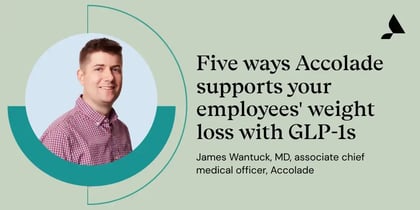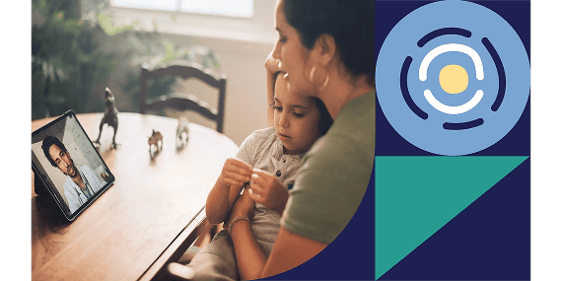We sat down with Dr. Shantanu Nundy ahead of the audiobook release of his book, Care After COVID: What the Pandemic Revealed Is Broken in Healthcare and How to Reinvent It. We discussed how the themes of his book remain prevalent as well as how technology is evolving for the betterment of patients and providers.
Care After COVID was published in 2021 and is now launching as an audiobook. The book published while the pandemic was still in full swing. Two years later as it makes its way to audiobook format, is it safe to say we’re now in the period “after COVID” as the title anticipates?
That’s a loaded first question! I think in terms of the official pandemic, yes, it’s over. But we all know that COVID is still with us, and just like many scientists anticipated, it has become part of our new normal, like the flu. In terms of how I defined “after COVID” for the book, I would say absolutely. For me, “after COVID” was about healthcare leaders getting through the peak of the pandemic—all the struggles on the frontlines, vaccine campaigns, etc.—to get to a place where they are ready to look ahead and innovate beyond COVID. From that lens, we're there.
You wrote Care After COVID to illuminate how the pandemic revealed what was broken in healthcare and how to reinvent it. Are the recommendations still relevant?
Yes, absolutely. When I wrote the book, I was very much anticipating the learning curve from the pandemic, as well as some of the positive changes to move healthcare and the health system forward. It was intentionally written not as a book about COVID—instead, it uses COVID as a common frame of reference that everybody can look at and say, “Wow, there were a lot of things that didn't go right”— and then realize that those same things have been problems in our health system for decades now. For example, health equity. COVID magnified health inequities but if you look at maternal mortality, chronic disease outcomes, etc., those are decades long problems. And so, absolutely, the lessons and the recommendations are relevant today.
Do you see any signs of the healthcare system reverting to practices pre-pandemic? How do we combat this?
There are a lot of signs that some of the positive changes to the system have reverted, which is certainly concerning. However, I'm very optimistic that systems can combat this.
A good example is drive thru clinics. For decades, people who were not well would sit in a waiting room, coughing and sneezing on each other, just to see a doctor for a few minutes to order a flu test. What's really interesting about that is it took a pandemic to make drive thru clinics a reality. As we’re looking at another wave of COVID now and heading into flu season, I don't see many clinics supporting drive thru options anymore. Why is that? The answer is leadership. COVID forced us to do things that we should have done decades ago, and we didn't need some external force to make happen.
I’m optimistic we can combat this: during the pandemic, we had the same staff, the same IT systems, the same budget challenges, and look what we accomplished. If we apply that level of ingenuity and perseverance with a clear-eyed view as to where healthcare has to go, then the system will move, because we are the system. We just need to lead.
On the flipside, what new practices outlined in the book are here to stay?
The big one everyone talks about is telemedicine. The peak of the pandemic saw very high rates of virtual care, and while it’s decreased substantially post-pandemic, rates are still higher than they were pre-pandemic. One place in particular where we're seeing it really take hold is with mental health. Because of the stigma associated with mental health and access barriers with lack of mental health professionals in many communities, as well as the fact that it's cumbersome to go physically to a clinic multiple times a month, which is what’s required for therapy, virtual care is an ideal use case for mental health.
In the book you explore three dimensions for transforming healthcare—distributed, digitally enabled and decentralization. With the rise of interest in generative AI in healthcare, where do you see it playing a role in the future of healthcare for both patients and providers?
I’ve been working in and around healthcare AI for the last ten years, but I didn't imagine even two years ago that we would have reached this tipping point in what AI can achieve. AI makes the promise of the three Ds (distributed, digitally enabled and decentralization) much more compelling today than I thought 18 months ago.
Distributed is the idea that care should start at home and in the community. We know how hard it is to get to a doctor or an expert in the moment you need it. The advantage of generative AI is that it creates a simple interface for anybody to ask questions to better understand if something warrants more clinical attention. They can get a reasonably good answer in a matter of moments. We know AI has its risks and biases, but it also has the potential to enable distributed care right in your home, your office or your community.
Digitally enabled is the idea that the relationships that are central to care need to be enabled by data and technology. As a primary care physician, I don’t always have an exact answer for my patients. I use a reference desk tool three or four times a day when I'm in clinic. What generative AI offers is a much more powerful tool ensuring my care is evidence based. Instead of searching one reference desk tool, I can search tens of thousands of reference tools and scientific papers instantaneously to better serve my patients right in the moment. That kind of digital enablement empowers me as a physician to be better for my patients.
The last one is decentralized, or putting more resources in the hands of providers, patients and families to improve care. Some of the other applications of AI are less patient or doctor facing and are wrapped around the automation and task shifting which will be powerful tools. I'm extremely optimistic about the potential for generative AI.
What is the greatest advantage and biggest challenge of implementing AI into healthcare practices?
The biggest advantage is that these AI tools are a new kind of knowledge worker. It's almost like every clinic, doctor and patient has a new type of health worker they suddenly have infinite access to. Kinda incredible!
We know we don't have enough doctors, most clinics are understaffed, and most patients struggle with access. So the potential of having this new kind of health worker available at your fingertips has transformative potential. And that’s just one use case; there are many others.
The biggest barrier to AI now is leadership and adoption. AI is not very well understood and there’s plenty of discussion today around how AI is biased and sometimes inaccurate. My perspective is that these concerns are very real but that we need to evaluate them depending on the use case we are considering. For example, AI bias may be a major issue if it’s being used for diagnosis but not if the use case is auto-transcribing patient visits.
For those who read (or listen!) to the book, what should be the biggest takeaway?
Better is possible.
During COVID, a clinic like mine was able to go from 100% in person to almost 100% virtual within a week. We were able to vaccinate entire communities through partnerships with churches and local groups. Drive thru clinics were born.
Even the most cynical healthcare expert was amazed by how much the frontlines of care were able to achieve. The pandemic forced us to build a muscle we’ve needed for a long time, and we now need to apply it to all the other challenges that we've had for decades in healthcare.
Find the audiobook version of Dr. Nundy’s book Care After COVID at:





